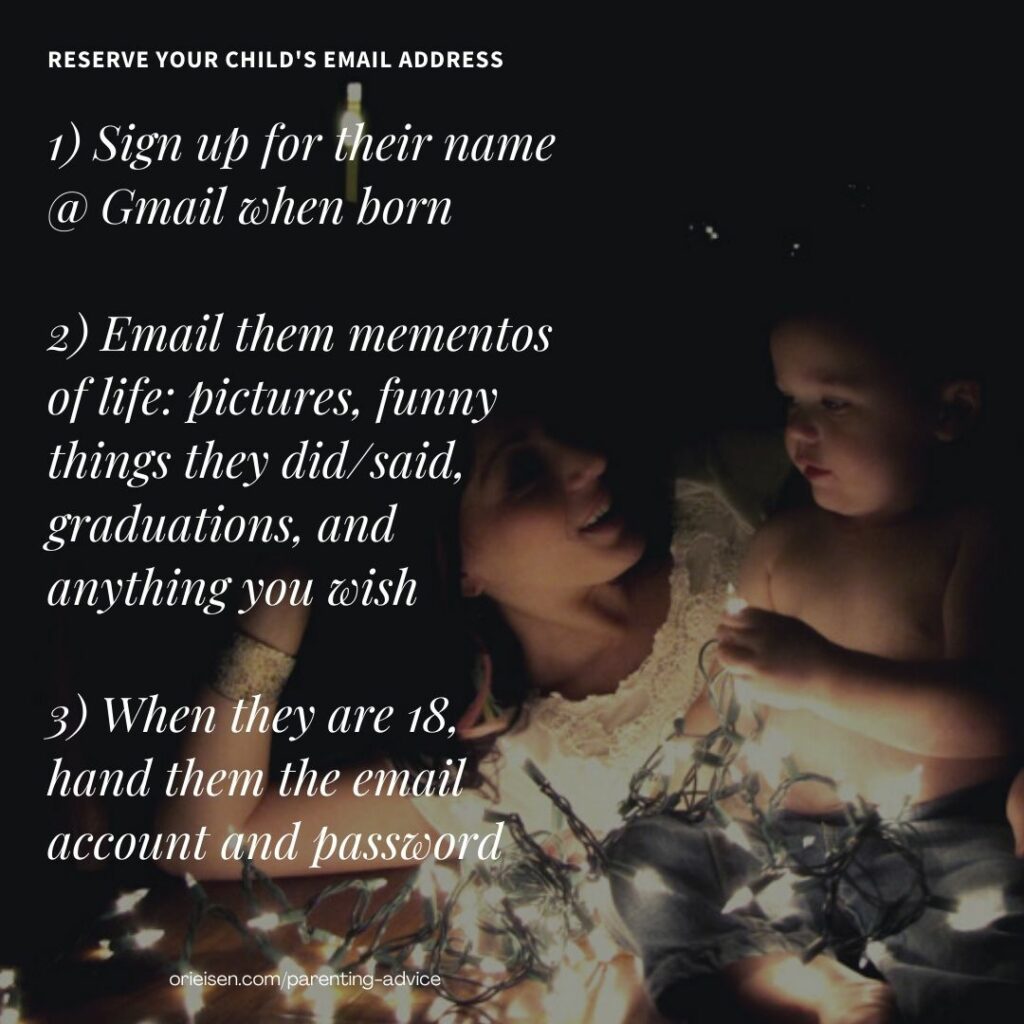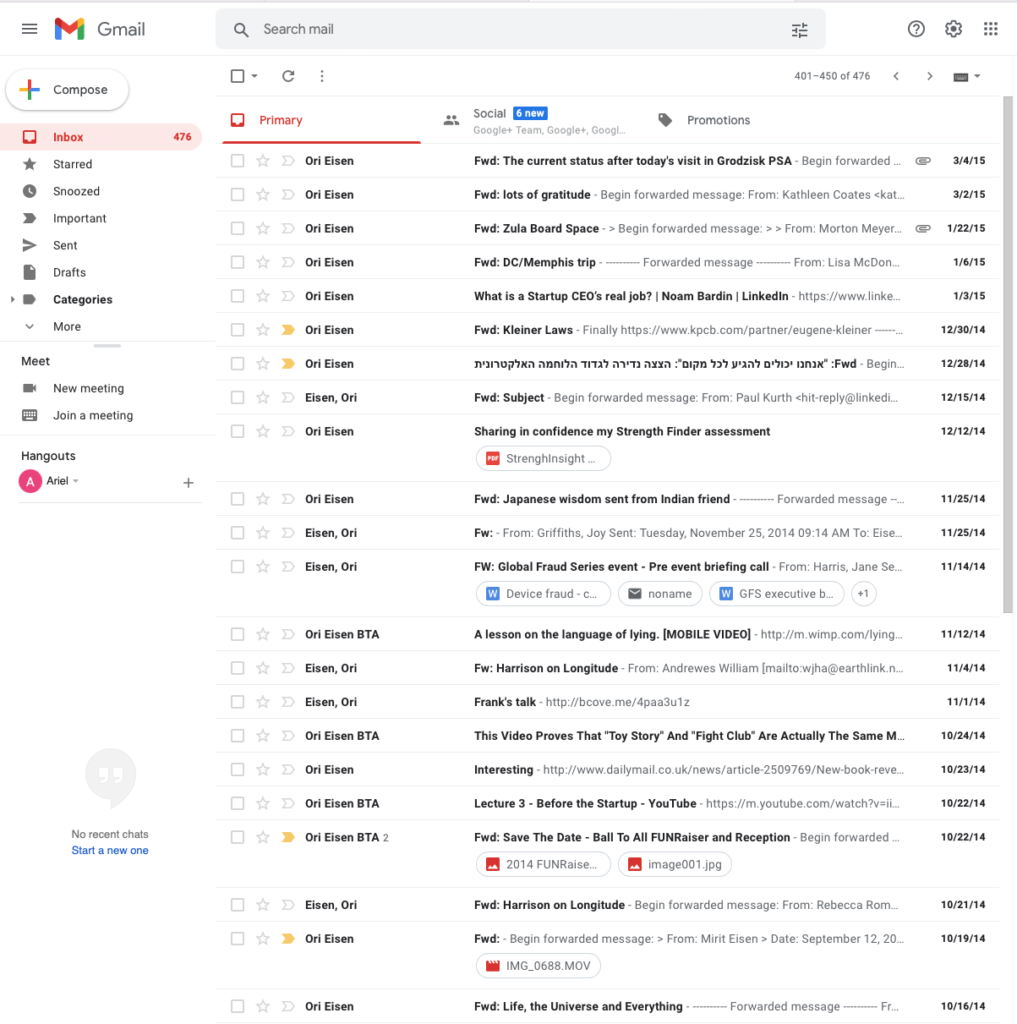“Your children are exceptional… what did you do to raise them this way?”
I used to say this to Lea and Richard Geller in the 90’s, when I would meet their children. They shared their advice, and it made sense.With our kids we followed the advice, and added some of our own ideas. Over the years, we would be asked the same question about our kids.
Life examiners who have children, need to make active decisions about how to raise them. The ideas below were shared by parents who raised exceptional children.
While some of the result is nature, and some is nurture – these ideas are the nurture part, and any parent can decide if they want to adopt them in raising their children. The aim of the advice, is to raise a child to be a productive adult.
From Lea and Richard Geller:
- Do not buy a child a digital watch, until they learn to read an analog clock.
- On summer vacations, to keep the mind from completely forgetting everything your learned during the school year… read a book of your choosing and write a full book report. Its homework, you are reading this right.
- Speak to your children, like you speak to adults. From when they are born onward.
- Learn to read a map.
- Lend a hand with the family business, see where the food on the table comes from, and how hard it is to earn it.
- From Monday through Friday, there is no screen time. No video games, or computer games, or “push button games”.
“…to raise extraordinary kids requires much love and effort… towards creating it all. It doesn’t just happen by happenstance.”
From Mirit and Ori Eisen:

- Create an “18 year old” email account for your child. Collect for them the memories and mementos you want them to read and see when they are older.
When Dan was born in 2001, I was worried that he would not be able to have his name, as his email handle (for example daneisen@gmail.com, daneisen@yahoo.com etc.). So I reserved the email address for him, and planned to hand it to him when he was 18, with the password.
Over time, I began to forward his email all kinds of things that I wanted him to read when he is a grown-up. Emails about events that took place, promotions, what he did today as a kid, photos and so on. Content that I could not share with him as a baby, or a young child.
It’s easy to do, you should reserve your kid their email address. Every day, you can forward what you want your kid to read, and simply add their “18 year old” email to the BCC or CC line. You can send them news articles, a funny thing they said, a graduation picture, something they did great, and anything you want them to learn about you.
It’s like a digital scrapbook, that does not take extra time to compile – you just add their email to anything you want to share.
Two year ago, Dan turned 18 in August, and one of his birthday gifts was the email address and the password. He was elated to receive it and had a LOT of emails waiting for him to read in it.
Since then, we had many conversations about the topics I share with him when he was a child. It made our relationship stronger, and helped him understand the history that unfolded when he was young.
My daughter Ariel turned 16 this year, and her “18 year old” email account is still accumulating (see image below). I can’t wait for her to turn 18 and on her birthday receive her “time capsule”. She will learn about all the things that happened when she was a child.

Some of the emails I shared with my kids are about tips and tricks, that I learned on my life journey:
How to fix vertigo if you are by yourself
Frank Abagnale’s Google Talk, over 13M views
7 Things Steve Jobs Said That You Should Say Every Single Day
This letter to a San Diego newspaper editor
Matthew McConaughey | 5 Minutes for the NEXT 50 Years of Your LIFE
2. Every day, do five things, to prepare your child for real life. It can take five minutes in total during the day, and you don’t have to do it all at once, or in a row:
- Let them make a decision – no matter if its big or small, ask them to decide and help decide. For example “What should we have for dinner?” Through this simple question you help them think about good life choices, and why cookies are not a good dinner choice. Why? If you decide everything for them always, how do you want to them to make good life decisions and choices later? Give them daily practice, and the lesson that life is full of decisions.
- Teach them something – it can be as simple as watching Jeopardy! or other trivia shows. It can be explaining today’s news and world affairs, and ask them questions to see they understand and connect the dots. For example, “Did you read the there was a volcanic eruption in Iceland? this may hinder our vacation plans…” Why? The world is complex, and has a lot of topics and subjects to learn. By spending time every day on connecting the dots, the child learns how things connect to a bigger picture. It helps them develop the skill of learning and putting things together.
- Ask them about their day – with a simple question “How was your day?” – you can learn a lot about your child, their school, their well-being or if they are getting bullied. Most days, your child will opt to say the minimum, like “fine”. Dig in, ask questions, poke, involve yourself with their life – and look at them when they answer. Their eyes can not hide sorrow, nor happiness. Why? By asking constantly how your kid is doing, you will learn their responses to the good days, the great days, the average days and… the awful days. The days they would not feel like talking to anyone. You want to be there for them, on “those” days.
- Poke them verbally – say something to jar them, startle them in a way that will help them develop a thicker skin. Think about it as developing calluses to play the guitar without feeling pain at the fingertips. For example, say “Did you brush your teeth today?” – Why? In high school and adulthood, your child will meet all kinds of people. Some will be jerks, and will say awful things to them. Give them training before they are adults, on how to handle tough questions, and make it a second nature to handle tough situations.
- Love them unconditionally – Spend a minute talking to them, about how wonderful they are, how happy you are to have them as your kids, and give them a long hug. Long hug means LONGER than they want you to hug them. It can take 15, 20 and sometimes 30 seconds to get to the awkward moment of a long hug. You want that. Why? Parenting is hard. You are between the rock and the hard place. On one hand you want the best for your child, and want them to have a “perfect childhood” without any of the bad stuff. However, a childhood without anything happening in it, will NOT prepare your child for adulthood. If anything, children who are raised by “helicopter parents” and have a very sheltered childhood may end up more depressed and dysfunctional adults. Your job as a parent is to help them train for real life and its unpleasantness. Yet, you need to do it with a loving touch, that above all is what your kid should experience. Saying “I love you” in a monotone voice, from afar, without looking at the child…. is NOT going to make them experience love. Hugging them physically, whispering in their ear “I love you”, and not letting go… will be memorable and tangible. One good hug a day can melt a lot of stress, and make it clear that above all – you are their nurturing parent, and that they can come to you with anything they encounter on their journey.
3. Remember that helping them “too much” is not helping them. Don’t do their homework for them. Don’t remind them to do their homework all the time… forgetting to do homework once will TEACH them to be responsible. If you are the responsible adult, and always remind them… how will they learn on their own?
Sounds like tough love? it is. As a parent, your job is to prepare the kid for how life will be, as you will NOT be there for them on a daily basis.
Consider this… if you see a butterfly trying to get out of its’ cocoon, should you help it or let it struggle?
What if by “helping” it, you prevent it from the exercise it needs to build strength in its wings?
You are preventing it from becoming an independent adult.

4. I had enough whip cream for one day
When you come back home from work, your battery level may be low. You may not be in the mood to see all the new things your kids want to show you. After all, for them, the painting they made of you is the highlight of their day.
So you muster your super-human strength, and you let them show you the thing they want to show you. You clap and you hope they will disappear to their room for the night…
Nope. They just got some reassurance from you that you love their painting, so they want more. They are going to get something else to show you, so you can clap.
How do you stop it without telling them the words you dread saying as an adult? How do you explain to them that you have enough (for today) but not enough of them?
Use the whip cream metaphor that any kid can understand.
Find a day, to teach them this metaphor, and don’t do it on the day that you are exhausted.
Bring a can of whip cream (and a spoon if your household frowns upon squirting from the nozzle directly to the mouth).
Sit your child, and give them one squirt of whip cream.
Ask them how is it?
They will surely say “yummy, give me some more?”
Give them another spoonful of whip cream, and ask them how is it?
Keep doing it… as soon enough the very yummy whip cream is going to be, not so yummy.
Get to the point that they simply don’t want anymore. If you studied economics, this is the theory of diminished marginal utility. You can lower the price of the second burger to get someone to guy another, but you really can’t get them to buy the fifth burger for $0.10 as there is just so much you can eat (in one seating).
When the kid is at the point they don’t want anymore whip cream… have this conversation with them.
You: you love whip cream, right?
Kid: Yes!
You: but after you have it a lot, in one day… its not tasting the same, right?
Kid: Yes, I don’t know why, but yes, its booorrriiinnngggg…
You: I love you like I love whip cream, its so yummy and I can’t wait to have more whip cream. But there is a limit of how much can I have in one seating and still enjoy it like it was the first bite.
Kid: Just like I cant have anymore whip cream right now…
You: Exactly. So, sometimes, you may want to show me a lot of cool things. I can only enjoy so many cool things in one day, or one seating. So if I tell you “I had enough whip cream for one day” – you will know that I still love you like I love whip cream. Yet, I had enough for one day, and tomorrow you can show me and tell me the rest. I will enjoy it like the first spoonful of whip cream.
Kid: So you always love me, and sometimes you just need a break from having the best time in the world with me – so it will feel like the first spoonful of whip cream?
You: Exactly. Even if you payed video games all day long… you will want a break at some point to rest and eat and do something else.
Kid: I understand.
I talked to 70 parents who raised highly successful kids—here are the 4 hard parenting rules that make them different:
Have exceptional parenting advice you wish to share? Write me at orieisen@gmail.com with the subject like “Parenting Advice”

